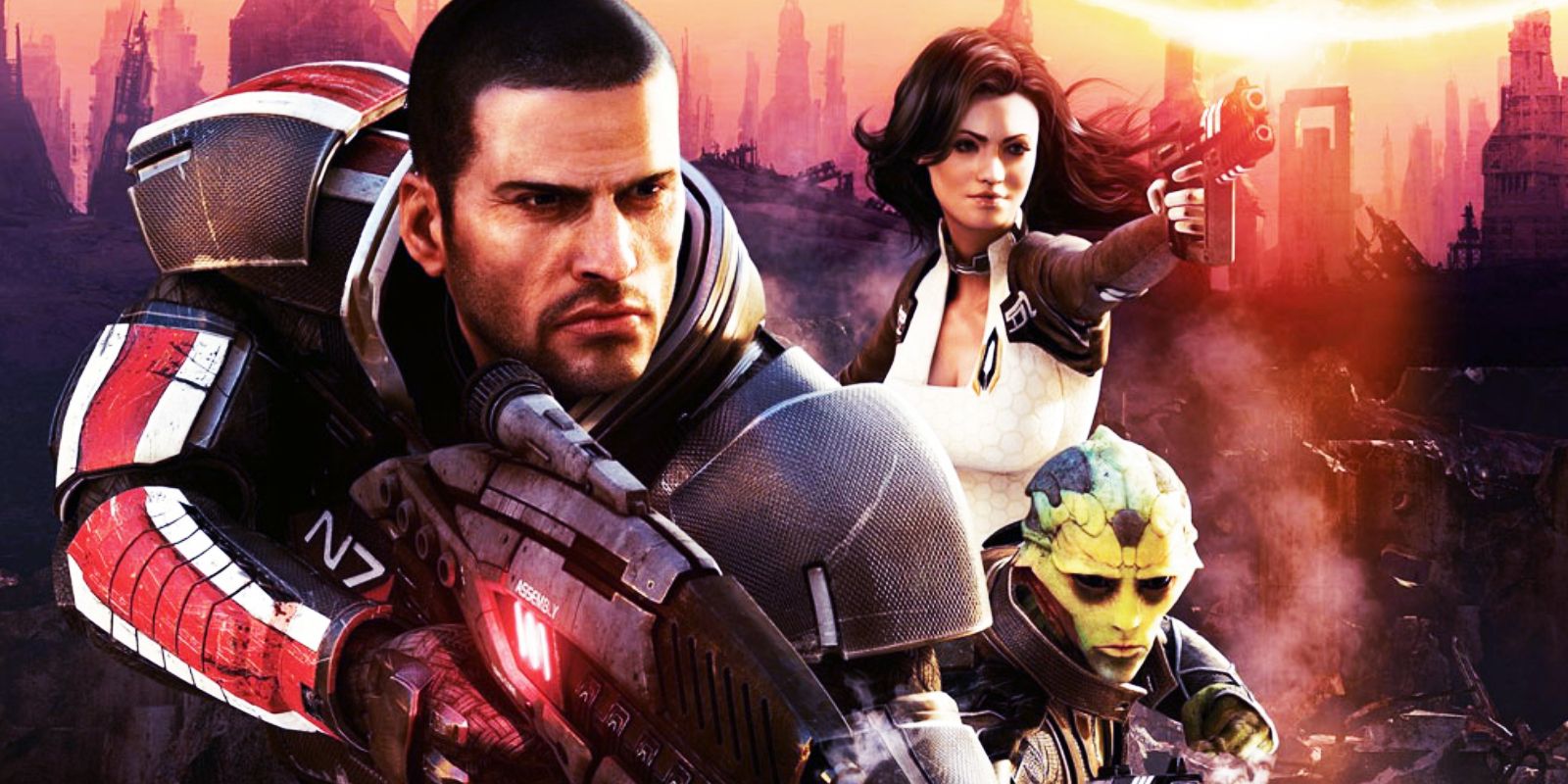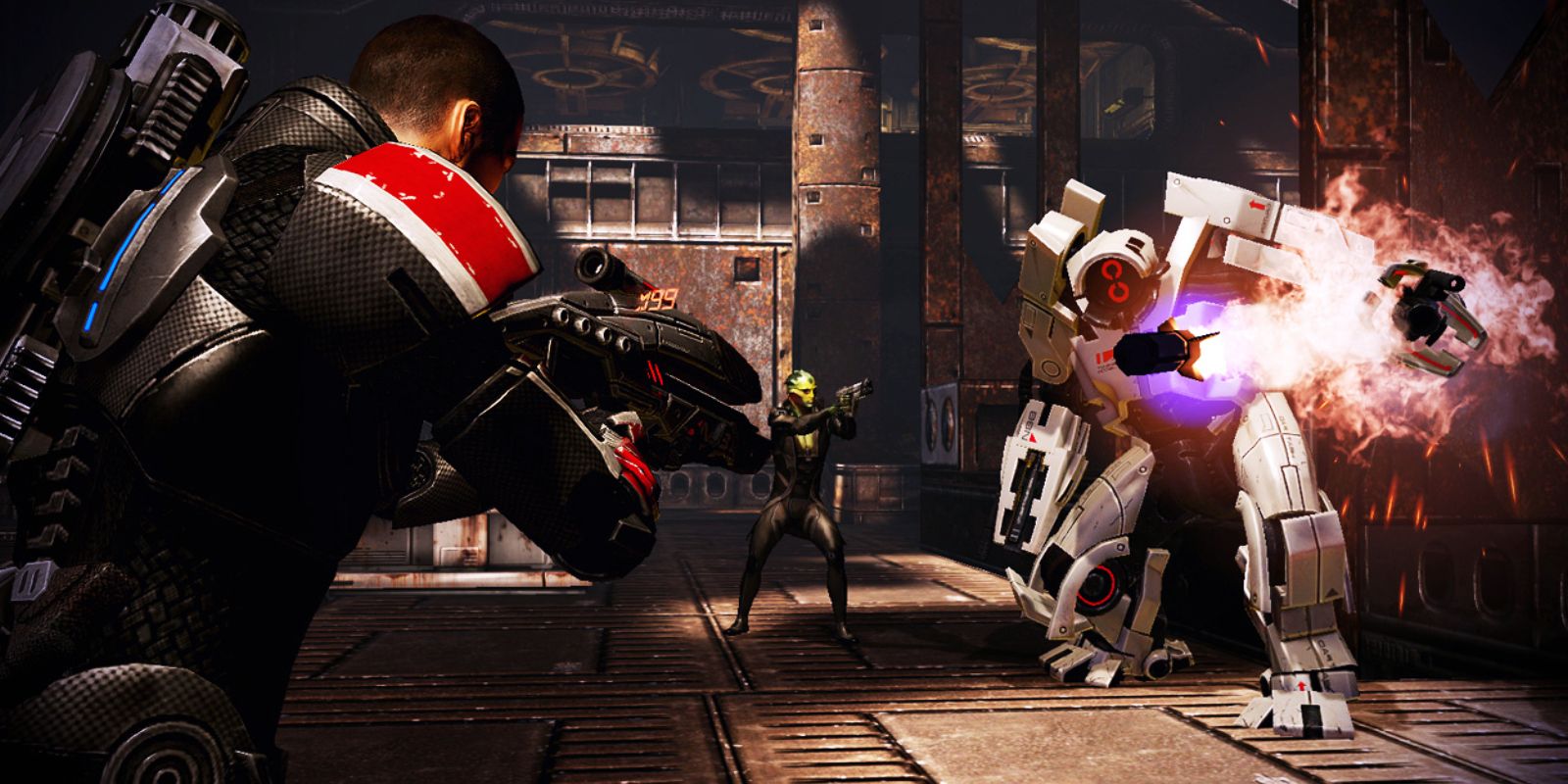BioWare has effectively breathed new life into the Mass Effect trilogy thanks to the recent release of Mass Effect Legendary Edition, which repackaged all three of the original games along with almost every piece of DLC in a visually overhauled version of the series. Both new and returning players have been given the opportunity to progress through the Mass Effect universe, following the evolution of Shepard's story through each entry and discovering the tonal and gameplay differences that come with each new title.
It's generally agreed among fans that Mass Effect 1 in particular has a significantly different feel to it than the latter two Mass Effect games do. The game places players right in the middle of a brand-new, fully-realized galaxy, leaving a heavy load of lore on their shoulders and utilizing a small but fleshed-out team of crewmembers to help navigate them through it. Although the combat, among other mechanics such as the infamous Mako handling and lengthy elevator rides, arguably haven't aged quite as well, the first game serves as a strong introduction to the franchise.
In comparison, Mass Effect 2 seems to be much more gameplay-focused than story-heavy. For one, the crew is much larger, including only a couple of familiar faces from Mass Effect 1, but making up for it by introducing around a dozen new characters to serve as part of Shepard's crew. This in turn adds dozens of new missions into the game - recruitment quests in which crewmembers must be acquired, and loyalty quests which are required to complete the game's final suicide mission without any casualties. Whereas Mass Effect 1 introduced unique RPG elements that help redefine the standard for the genre, ME2 and ME3 leaned more heavily into the action side of things.
ME2's Combat Isn't The Only Thing That Changes From ME1
Mass Effect 2's combat systems are less tactical than Mass Effect 1. While players still have the ability to control their squad's power usage, the game seems built to require less pausing and strategizing. Its fights are more fast-paced and hands-on, and combat is smoother, something that would be pushed further in Mass Effect 3 as even more movement was introduced to the series. Additionally, renewed focus was given to weapons - specializations, upgrades, and even how the series handled ammo was changed in the sequel. Out-of-combat skills like electronics were removed in favor of minigames, and new biotic powers were added to allow room for more diverse playstyles. However, there are more changes worth mentioning than just those that impact combat. Mass Effect 2 tells a distinctly different story than what was set up in Mass Effect 1 - and it set a new tone moving forward into Mass Effect 3.
In ME1, players are tasked with tracking down a rogue Spectre - just one man - only to end up uncovering a larger mystery with no real solution by the end of the game. It sets Shepard up as someone uniquely capable of solving the mystery of how to defeat the Reapers, provided unique tools and the support of the Council. Almost all of this was set aside in Mass Effect 2, which begins with Shepard's death and sees them resurrected as something of an outcast from the Alliance; separated from the majority of their original crew, their resources, and two years behind the rest of the galaxy. Rather than being just a Spectre with a capable crew and unique assets, Shepard is more akin to a legendary hero, pursuing a massive-scale threat with straightforward goals and pushing back against the rest of the galaxy. The stakes were drastically upped in a divergent manner, creating a largely different feeling than what players encountered in the first Mass Effect game.


